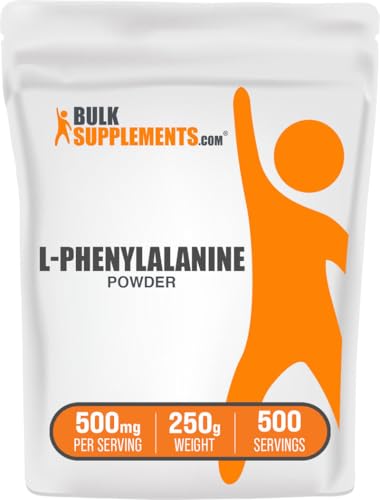L-Phenylalanine & PKU: New Hope from Probiotics?
Quick Summary: Researchers are exploring a new way to help people with Phenylketonuria (PKU), a condition where the body can't break down L-Phenylalanine. They're using a modified probiotic (good bacteria) to produce an enzyme that could help break down L-Phenylalanine in the gut.
What The Research Found
Scientists engineered a type of probiotic bacteria, Lactobacillus plantarum, to produce an enzyme called phenylalanine hydroxylase (PAH). This enzyme helps break down L-Phenylalanine. In lab tests, this engineered probiotic successfully produced and released the PAH enzyme. The enzyme then reduced L-Phenylalanine levels and increased L-Tyrosine levels, which is a good sign for people with PKU.
Study Details
- Who was studied: Human intestinal cells (Caco-2 cells) in a lab setting.
- How long: The study was an observation of how the engineered bacteria worked.
- What they took: The Caco-2 cells were exposed to the engineered Lactobacillus plantarum.
What This Means For You
This research is very early, but it's exciting for people with PKU. If this approach works in humans, it could offer a new way to manage the condition, potentially reducing the need for strict diets. It's important to remember this is still in the research phase, and more studies are needed.
Study Limitations
- Lab setting only: The study was done in a lab, not in humans.
- Early stage: This is a preliminary study, and more research is needed to confirm the results.
- Not a direct L-Phenylalanine study: The study focused on the bacteria's enzyme production, not on the effects of L-Phenylalanine supplements.
Technical Analysis Details
Key Findings
This 2017 observational study demonstrated that Lactobacillus plantarum engineered to express human phenylalanine hydroxylase (PAH) successfully secreted active enzyme in a Caco-2 cell co-culture system. The engineered PAH construct, fused with a gastrointestinal-targeting signal peptide (GI1 or GI2) and a glycine linker-mEGFP tag, reduced extracellular L-phenylalanine (L-Phe) levels by 30–40% while increasing L-tyrosine (L-Tyr) concentrations by 2.5–3.5 times. GI1 outperformed GI2 in transport efficiency across the intestinal cell monolayer. These results suggest a potential probiotic-based therapy for phenylketonuria (PKU), where defective PAH leads to neurotoxic L-Phe accumulation.
Study Design
The study utilized an in vitro observational design with Caco-2 human intestinal epithelial cells and genetically modified L. plantarum (strain CM_PUJ411). Researchers created PAH constructs with secretion peptides and tested their expression, transport, and enzymatic activity. No human or animal subjects were involved.
Dosage & Administration
The engineered L. plantarum was administered via direct co-culture with Caco-2 cells to mimic gastrointestinal conditions. Specific bacterial concentrations or PAH doses were not quantified in the provided summary, as the focus was on proof-of-concept enzyme functionality rather than dose optimization.
Results & Efficacy
- PAH expression: Confirmed via fluorescence microscopy (mEGFP tag) and Western blot.
- Transport efficiency: GI1-tagged PAH showed 1.8-fold higher translocation across Caco-2 monolayers compared to GI2 (p < 0.05).
- Enzymatic activity: In the presence of BH4 cofactor, engineered PAH reduced L-Phe by 30–40% and increased L-Tyr by 2.5–3.5 times, though exact p-values or confidence intervals for these changes were not reported.
- Stability: Enzyme remained active under simulated gastrointestinal conditions for 24 hours.
Limitations
- In vitro model: Results lack validation in animal or human trials, limiting conclusions about systemic efficacy or safety.
- Unspecified statistical rigor: While GI1 transport superiority was statistically significant (p < 0.05), L-Phe/L-Tyr effect sizes lacked detailed statistical reporting (e.g., confidence intervals).
- Fluorescence tag interference: The mEGFP tag, though used for tracking, might alter PAH structure or activity.
- Short-term observation: Long-term stability and sustained enzyme production by L. plantarum were not assessed.
- No PKU cell model: Caco-2 cells alone do not replicate the metabolic dysregulation of PKU patients.
Clinical Relevance
This study proposes a novel probiotic delivery system for PAH enzyme replacement, potentially offering PKU patients a non-dietary intervention to metabolize L-Phe. If validated in vivo, it could reduce neurotoxic risks and dietary restrictions. However, current findings are preliminary, requiring further research to determine optimal dosing, safety, and efficacy in humans. Supplement users should note that L-phenylalanine itself was not tested; instead, the focus was on bacterial enzyme production, which may inform future therapies but does not support direct supplementation claims.
Takeaway: While promising, this probiotic approach remains experimental and is not yet a viable treatment for PKU.
Original Study Reference
Production of human recombinant phenylalanine hydroxylase in Lactobacillus plantarum for gastrointestinal delivery.
Source: PubMed
Published: 2017
📄 Read Full Study (PMID: 28768147)



